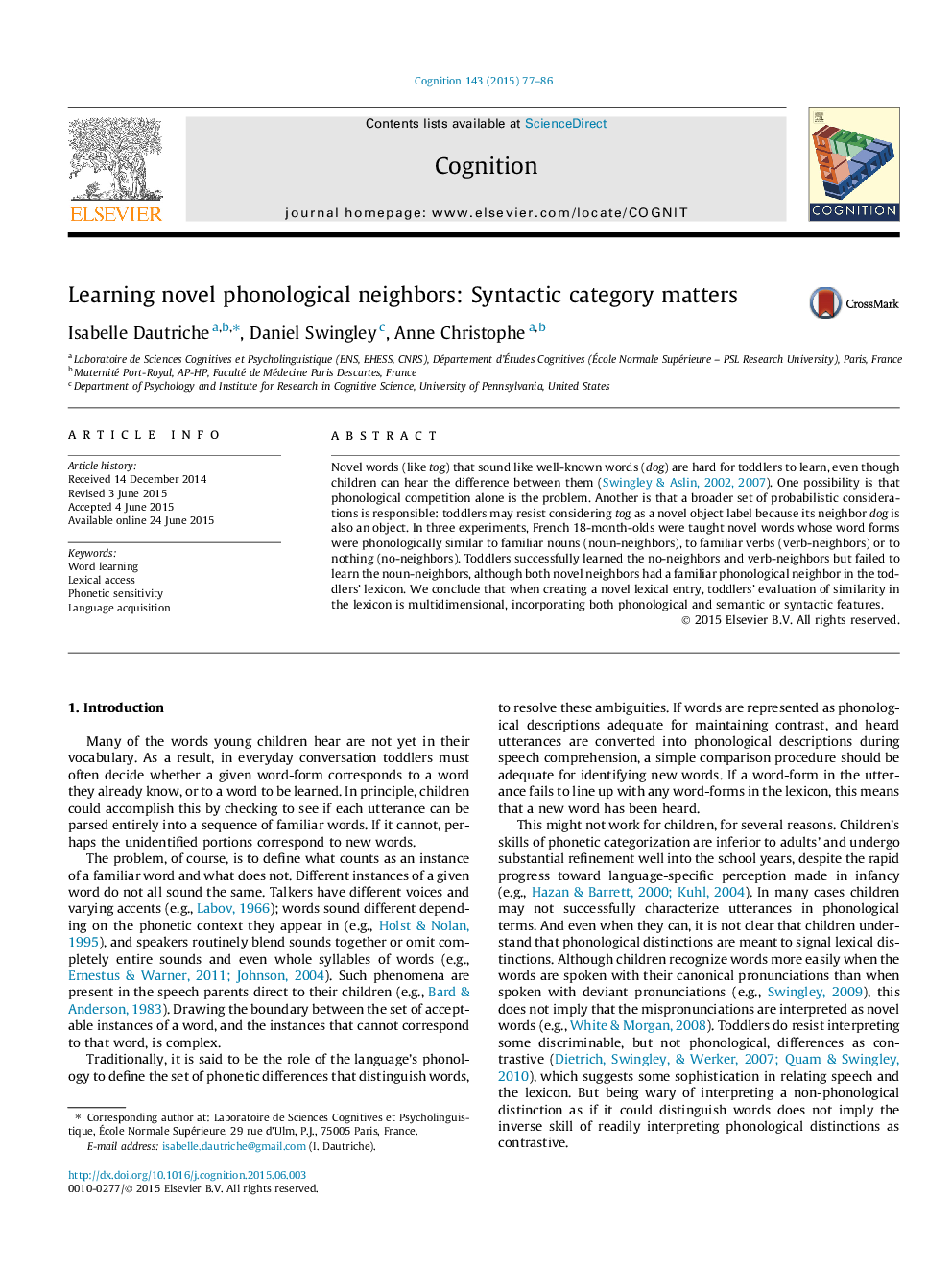| Article ID | Journal | Published Year | Pages | File Type |
|---|---|---|---|---|
| 7286660 | Cognition | 2015 | 10 Pages |
Abstract
Novel words (like tog) that sound like well-known words (dog) are hard for toddlers to learn, even though children can hear the difference between them (Swingley & Aslin, 2002, 2007). One possibility is that phonological competition alone is the problem. Another is that a broader set of probabilistic considerations is responsible: toddlers may resist considering tog as a novel object label because its neighbor dog is also an object. In three experiments, French 18-month-olds were taught novel words whose word forms were phonologically similar to familiar nouns (noun-neighbors), to familiar verbs (verb-neighbors) or to nothing (no-neighbors). Toddlers successfully learned the no-neighbors and verb-neighbors but failed to learn the noun-neighbors, although both novel neighbors had a familiar phonological neighbor in the toddlers' lexicon. We conclude that when creating a novel lexical entry, toddlers' evaluation of similarity in the lexicon is multidimensional, incorporating both phonological and semantic or syntactic features.
Related Topics
Life Sciences
Neuroscience
Cognitive Neuroscience
Authors
Isabelle Dautriche, Daniel Swingley, Anne Christophe,
